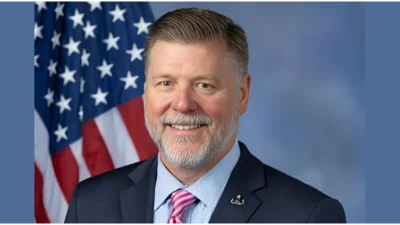Energy and Commerce Chairman Frank Pallone, Jr. (D-NJ) delivered the following opening remarks as prepared for delivery today at a Health Subcommittee hearing titled, “FDA User Fee Reauthorization: Ensuring Safe and Effective Medical Devices:”
Today we are continuing our work to reauthorize the Food and Drug Administration (FDA) user fees, which provide critical resources for the agency’s medical product review programs. All of the user fees expire on September 30th of this year, and Congress must pass these reauthorizations well ahead of that deadline to ensure FDA can continue to operate without interruption.
At today’s hearing, we will review the Medical Device User Fee Program, also known as MDUFA. Throughout the COVID-19 pandemic, the FDA’s Center for Devices and Radiological Health, or CDRH, has been at the forefront of regulating and adapting guidance to help develop and authorize diagnostic tests. It has also managed the supply chain for critical items like gloves, masks, respirators, swabs, and ventilators. The staff at CDRH have been working day and night to stay ahead of the virus, and they deserve our recognition and appreciation. Their work over the last two years has underscored the importance of ensuring that FDA resources are in place to make sure we have a safe and effective medical device supply chain. The draft agreement that we are discussing today between FDA and industry will substantially increase funds for CDRH, which will lead to a significant increase in staff capacity at the agency.
The performance goals included in the draft agreement will also allow for innovation through the creation of the Total Product Life Cycle Advisory Program Pilot, or the TAP Pilot. This pilot program will allow for earlier interaction between FDA and developers and will facilitate regular engagement throughout the medical device review cycle. This will hopefully lead to a sustainable program that builds safety and efficacy discussions into the front end of development, to speed innovation in a responsible way.
The draft also lays out new transparency measures that will ensure funds are being spent efficiently and going to the programs authorized by the agreement and the legislation we pass.
When I mention transparency, I want to also note the importance of the process we are undertaking here in the Committee today, and the process Congress has laid out for FDA and industry to reach the agreement we are now reviewing. By statute, as part of the MDUFA reauthorization, FDA is mandated to consult with regulated industry, patient and consumer representatives, and health care professionals, receive public comment, and submit recommendations to Congress no later than January 15th of this year.
This deadline is not a mere suggestion, it is law, and the process is important because it allows for FDA, industry, and members of the public to examine what has worked well, and where review programs can be improved through the reauthorization process. It also provides Congress with sufficient time to thoroughly review these recommendations and reauthorize the program ahead of the funding deadline.
FDA released its draft commitment letter to the Committee last Tuesday, more than two months after the January 15 deadline. FDA has not received public comment on the draft yet. This is troubling considering there are serious questions about numerous issues including how the agency and industry contemplated the extensions of programs due to sunset in their agreement.
There is still much to review and more work to be done, and we must act quickly. Failure to reauthorize the program on time would be catastrophic for patients relying on safe and effective medical devices.
While FDA and industry missed their deadline, this Committee will not. I appreciate FDA and industry being here today to help us understand their proposal. I also think it is important for us to discuss how we can improve the process, so this does not happen again in the future.
We will also review two other commonsense proposals. One bill, from Representative Schrier, would create a new advisory panel at FDA to bring an independent public health focus to regulatory decisions involving diagnostic tests, the importance of which we are still seeing during the COVID-19 pandemic. Another bill, from Representative Burgess, would incorporate cybersecurity into medical device applications, which is critical as medical devices become more interconnected and technologically advanced.
I look forward to the discussion today.
Original source can be found here.









